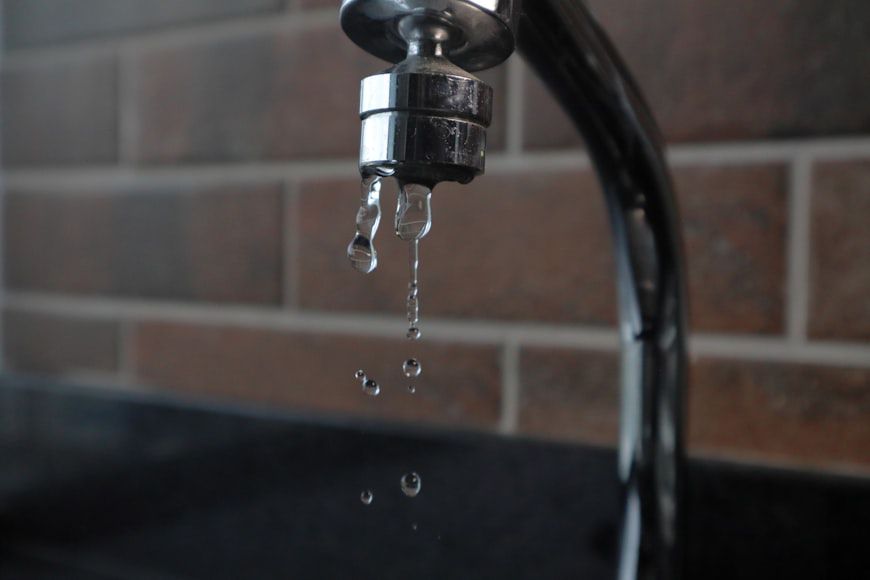Plumbing disasters don’t wait for convenient times. That midnight sound of rushing water where it shouldn’t be probably means your evening just got very expensive.
Deciding whether to call an emergency plumber for your situation isn’t always straightforward. Some homeowners wait too long, thinking they can manage until morning. Others panic over minor issues that could wait.
The trick is knowing when you actually need to call an emergency plumber for your home versus what can wait until regular hours. Getting this wrong costs either way – delay too long and face massive damage, or call unnecessarily and pay premium rates.
Water Going Places It Shouldn’t
Visible water inside your home usually means hidden damage is already happening elsewhere.
Kitchen floods from washing machine failures spread faster than most people expect. Water finds its way under cabinets, into floor joints, and behind walls, where it causes problems you won’t see for weeks. The damp smell that develops later signals mould growth that’s expensive to remediate.
Bathroom ceiling stains don’t appear overnight, though they might seem to. These brown patches represent days or weeks of water saturating materials above. By the time you notice the stain, significant structural damage has likely occurred in spaces you can’t see.
Basement flooding during heavy rain creates immediate electrical hazards alongside property damage. Standing water near electrical panels, outlets, or appliances turns entire areas into potential death traps.
Water damage spreads exponentially rather than gradually. What looks manageable today becomes a complete disaster by tomorrow morning.
Some situations escalate so quickly that waiting even a few hours makes everything worse.
Gas Problems That Can’t Wait
Strange smells near gas appliances require immediate evacuation and professional response.
That distinctive rotten egg odour around your boiler means natural gas is escaping somewhere. Gas companies add mercaptan specifically to make leaks detectable because natural gas is naturally odourless. These leaks can result in explosions if ignition sources are present.
Carbon monoxide from faulty heating systems kills without warning signs. This colourless, odourless gas causes symptoms like headaches, nausea, and dizziness that people often mistake for flu or food poisoning.
Boiler flames that burn yellow or orange instead of blue indicate incomplete combustion and potential carbon monoxide production. These appliances need immediate professional attention to prevent fatal gas exposure throughout your home.
Gas problems don’t improve on their own. They typically worsen until professional intervention occurs.
Electrical Dangers From Water Contact
Wet electrical systems create lethal combinations that demand immediate professional attention.
Flooded areas with electrical outlets, panels, or appliances pose electrocution risks that extend far beyond property damage concerns. Water conducts electricity efficiently, making entire rooms dangerous for anyone who enters.
Circuit breakers that trip repeatedly often indicate water contact with electrical systems. These safety devices prevent electrocution and fires, but their activation signals serious problems developing within your home’s wiring.
Electrical outlets that spark, smoke, or show water damage need immediate professional evaluation. These conditions can cause house fires or electrocute family members who accidentally contact affected areas.
Water and electricity problems tend to worsen rapidly as corrosion develops and connections fail.
Sewage Backing Into Living Areas
Raw sewage in your home creates health hazards that make properties uninhabitable until professional cleanup occurs.
Multiple drains backing up simultaneously indicates main sewer line blockages forcing contaminated water back into living spaces. This sewage contains bacteria, viruses, and parasites that pose serious health risks to anyone exposed.
Toilet overflows that don’t respond to normal clearing methods often signal deeper drainage problems. These blockages typically worsen during heavy rainfall or high usage periods throughout your neighbourhood.
The contamination from sewage backups extends beyond visible areas. Professional restoration becomes necessary to remove health hazards and prevent long-term illness risks.
Sewage problems rarely resolve themselves. They usually escalate until professional intervention stops the source.
Pipes Freezing and Bursting
Winter plumbing failures often happen suddenly during temperature changes.
Frozen pipes create internal pressure as water expands roughly 9% when turning to ice. This expansion eventually cracks pipes or separates joints, leading to flooding when temperatures rise and ice melts.
Complete water loss during cold weather often means frozen pipes that could burst without warning. The longer pipes remain frozen, the more likely they are to fail catastrophically during thawing.
Pipes in unheated areas like lofts, crawl spaces, or exterior walls freeze first and fail most dramatically. These locations often flood areas where damage goes unnoticed for hours or days.
Temperature fluctuations cause more pipe failures than sustained cold periods.
When Emergency Costs Make Sense
After-hours service charges seem expensive until compared with damage restoration costs.
Emergency response tonight prevents thousands in damage next week. Water spreads quickly once it starts flowing, and insurance companies often deny claims when homeowners delay calling professionals after obvious emergencies develop.
Professional intervention stops problems from escalating into disasters requiring extensive restoration work. Quick response often means simple repairs instead of complete system replacements or structural rebuilding.
Some plumbing emergencies threaten lives rather than just property. Gas leaks, carbon monoxide exposure, and electrical hazards don’t respect convenient timing or budget concerns.
The most expensive emergency repair remains the one you don’t make quickly enough.
Recognising Genuine Emergencies
Not every plumbing problem requires immediate professional response, but some definitely do.
Gas smells, electrical contact with water, sewage backups, and significant flooding all qualify as genuine emergencies that can’t wait for regular business hours.
Frozen pipes during cold weather and complete system failures also require immediate attention to prevent escalating damage or safety hazards.
Your instincts about serious problems are usually correct. When something feels genuinely wrong with your home’s systems, professional evaluation provides peace of mind that outweighs emergency service costs.
Waiting too long with obvious emergencies often transforms manageable repairs into complete system replacements or extensive property restoration projects that cost significantly more than immediate professional response.
Featured Image Source: https://images.unsplash.com/photo-1637939157373-2198d933afdf?q=80&w=870&auto=format&fit=crop&ixlib=rb-4.1.0&ixid=M3wxMjA3fDB8MHxwaG90by1wYWdlfHx8fGVufDB8fHx8fA%3D%3D
